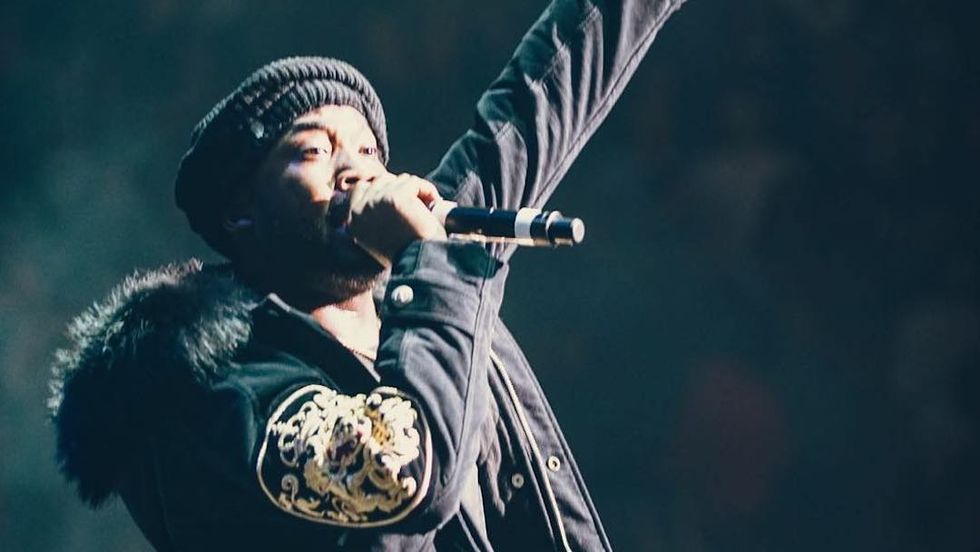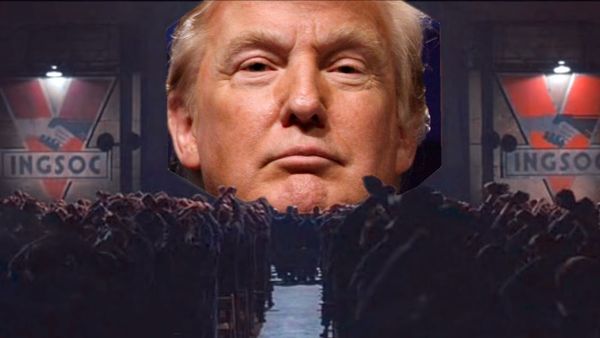On November 6th, 2017, rapper Meek Mill was sentenced to two to four years in prison following probation violations. Back in 2008, the Philadelphia MC was arrested for drugs and weapons charges, resulting in eight months of prison time and initially just five years of probation. Those five years were extended to ten additional years in 2009 when Meek left Philadelphia without approval and was once again arrested and put in prison for another five months. Last March, Meek Mill, with only two years left on his probation sentence, was arrested after being in a fight at a St. Louis airport. Just five months later he posted a video on his Instagram story that showed him riding a dirt bike through the streets of Manhattan, leading to another arrest that resulted in a judge sentencing him to two to four years in prison for probation violation.
Following the passing of Meek’s sentence, thousands of people expressed their outrage on social media. The hashtag #FreeMeekMill started trending and dozens of celebrities in both the hip-hop culture and outside of it expressed their sympathy for Meek and their anger towards the criminal justice system for this. JAY-Z, who manages Meek with his Roc Nation label, posted to Facebook about Meek’s sentence: “The sentence handed down by the Judge - against the recommendation of the Assistant District Attorney and Probation Officer - is unjust and heavy-handed. We will always stand by and support Meek Mill, both as he attempts to right this wrongful sentence and then in returning to his musical career.”
The outrage came to a climax on November 13th, when thousands gathered outside Philadelphia’s criminal justice center to protest the sentence handed down by the judge. Those who spoke at the rally include Rick Ross, Macklemore, and PnB Rock. Currently, a Change.org petition asking Pennsylvania Governor Tom Wolf to reconsider Meek’s sentence has over 350,000 signatures, and Meek’s lawyer Joe Tacopina is looking to have the case’s judge removed, as he believes she is holding a grudge against Meek and therefore passed an unfair sentence.
At the rally on the 13th, Rick Ross made a profound statement on Meek: “I want y’all to understand that if it takes Meek Mill to draw this attention, we gonna use Meek Mill to draw this attention that is gonna speak for so many others.” Rick Ross is talking, of course, about the thousands of black people who are unfairly incarcerated every year for probation violations and other small misdemeanors. In this instance, Philadelphia taxpayers now have to pay thousands of dollars collectively for two to four years to keep Meek locked up because he is a supposed “threat to society.”
Meanwhile, he is only going to prison for getting into a fight at an airport, of which the charges have already been dropped, and riding a dirt bike through New York City. This exposes the many faults having to do with probation in our criminal justice system, as even the slightest violation of probation like missing a curfew could deem someone a “threat to society” and get them locked up for even longer than the time they were locked up for committing the original crime. Cases like Meek Mill’s are the reason why America has more people incarcerated than any other country on earth.
Meek’s sentence also exposes the systemic racism that has been in our criminal justice system for decades. While Meek is getting a prison sentence for two small misdemeanors, judges and police are turning a blind eye to white celebrities like Justin Bieber while they are committing worse crimes like DUI, drag racing, and property damage. Meek Mill’s case accurately represents how police and criminal justice workers in the US track black people so much more than white people once they’re on probation, which shows the insane amount of racial prejudice within the modern US criminal justice system.
The reason why black people are treated so unfairly in the criminal justice system stems all the way back to slavery. Ever since slavery was abolished in the US, the federal government has done little to nothing to make sure African Americans in the US have equal opportunities as Caucasians. This eventually led to the more privileged ethnicity taking advantage of the other, which caused sharecropping, segregation, and mass incarceration. White people in America continue to, on average, receive better opportunities for social mobility and economic prosperity than African Americans.
Because of this, many poor communities in America have majority POC populations, and in these communities crime is often seen as an alternative way of providing for the family. Once the people of these communities are arrested, put behind bars, and released on probation for their crimes, they can easily turn back to crime, causing them to be incarcerated again and again and have no hope of ever redeeming themselves in society. These are the effects of systemic racism in America today.
However, if everyone in America were to be given equal opportunities, the incarceration rate would almost certainly decrease. This would lead to the population having to pay fewer taxes to keep people locked up. The saved money from a decrease in incarceration could also be used to eradicate the cruel and unusual death penalty and give the worst criminals in the US life sentences instead. America might finally be able to catch up to more developed areas of the world by doing this.
Hopefully, Meek Mill’s sentencing will finally make people realize the horrid effects of institutional racism in America, and maybe those people could even take active steps to finding a solution to this grave problem.



















